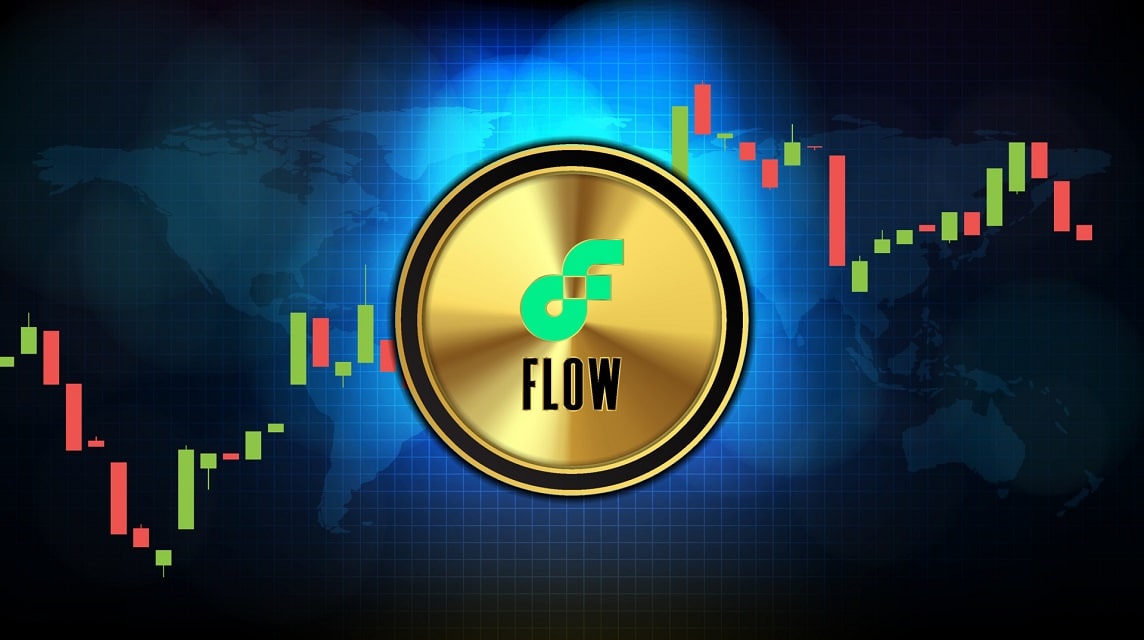-
 Bitcoin
Bitcoin $88,171.9943
0.77% -
 Ethereum
Ethereum $1,583.5013
-3.79% -
 Tether USDt
Tether USDt $0.9999
-0.01% -
 XRP
XRP $2.0788
-2.36% -
 BNB
BNB $601.6429
-0.53% -
 Solana
Solana $139.2326
-1.03% -
 USDC
USDC $1.0000
0.00% -
 Dogecoin
Dogecoin $0.1619
-0.06% -
 TRON
TRON $0.2477
1.31% -
 Cardano
Cardano $0.6267
-2.59% -
 Chainlink
Chainlink $13.0581
-3.75% -
 UNUS SED LEO
UNUS SED LEO $9.1913
-2.40% -
 Avalanche
Avalanche $19.6951
-3.57% -
 Stellar
Stellar $0.2445
-4.58% -
 Toncoin
Toncoin $2.9298
-3.54% -
 Sui
Sui $2.2407
-0.77% -
 Hedera
Hedera $0.1722
-0.30% -
 Shiba Inu
Shiba Inu $0.0...01233
-2.57% -
 Bitcoin Cash
Bitcoin Cash $337.4706
-0.29% -
 Hyperliquid
Hyperliquid $18.2488
-0.06% -
 Litecoin
Litecoin $78.5693
-1.21% -
 Polkadot
Polkadot $3.7036
-5.93% -
 Dai
Dai $1.0000
-0.01% -
 Bitget Token
Bitget Token $4.4181
-1.29% -
 Ethena USDe
Ethena USDe $0.9992
-0.01% -
 Pi
Pi $0.6291
-1.32% -
 Monero
Monero $216.0820
0.38% -
 Pepe
Pepe $0.0...07910
0.59% -
 Uniswap
Uniswap $5.2401
-3.83% -
 OKB
OKB $50.7369
-0.42%
What is FLOW currency? What does FLOW coin mean?
FLOW's NFT-centric features and scalability make it a sought-after platform for NFT marketplaces, blockchain games, and digital art distribution.
Oct 29, 2024 at 08:04 am

What is FLOW Currency? Understanding the FLOW Blockchain
FLOW is a decentralized blockchain designed specifically for the development and execution of non-fungible tokens (NFTs) and dApps in the gaming, collectibles, and creators' economy. It was launched in 2020 by Dapper Labs, the company behind the popular CryptoKitties game.
Key Characteristics of FLOW
- High Scalability: FLOW boasts impressive scalability, capable of handling thousands of transactions per second thanks to its unique multi-role architecture.
- NFT Optimization: The blockchain is seamlessly tailored for NFT use cases, offering specialized features for minting, distributing, and managing NFTs.
- Developer-Friendly: FLOW provides comprehensive tools and resources for developers, making it easy to build and deploy dApps on the platform.
- Governance: FLOW's decentralized governance model allows stakeholders to participate in decision-making and chart the future direction of the blockchain.
- Multi-Node Architecture: FLOW's architecture employs collectors, proposers, and verifiers to enhance transaction processing efficiency.
What Does FLOW Coin Mean?
FLOW tokens play a crucial role within the FLOW blockchain ecosystem:
- Transaction Fees: FLOW tokens are used to pay transaction fees on the network.
- Staking: Node operators stake FLOW tokens to participate in the consensus mechanism and earn rewards.
- Governance: FLOW token holders have the right to propose and vote on changes to the blockchain's parameters.
- Value Store: FLOW token can be bought, sold, and held as a form of digital asset.
Applications of FLOW
FLOW's primary focus revolves around NFTs, gaming, and the creators' economy. Its high scalability and NFT-centric features make it an ideal platform for:
- NFT Marketplaces: FLOW powers several established NFT marketplaces, such as OpenSea and Rarible.
- Gaming: FLOW-based games like CryptoKitties, NBA Top Shot, and Gods Unchained offer unique and engaging gameplay experiences.
- Art and Collectibles: FLOW enables artists and creators to mint and distribute digital art, collectibles, and other virtual assets as NFTs.
In summary, FLOW is a high-performance blockchain optimized for NFTs and dApps, with a focus on scalability, developer friendliness, and governance. Its FLOW tokens serve various purposes within the ecosystem, including transaction fees, staking, governance, and value storage.
Disclaimer:info@kdj.com
The information provided is not trading advice. kdj.com does not assume any responsibility for any investments made based on the information provided in this article. Cryptocurrencies are highly volatile and it is highly recommended that you invest with caution after thorough research!
If you believe that the content used on this website infringes your copyright, please contact us immediately (info@kdj.com) and we will delete it promptly.
- What if the next internet sensation isn't a viral video or dance challenge—but a meme coin?
- 2025-04-22 14:40:12
- Gold Hits New All-Time High Near $3,500
- 2025-04-22 14:40:12
- Crypto law firm Burwick Law has called out Solana-based non-fungible token platform Metaplex's plan to sweep unclaimed Solana (SOL) into its treasury
- 2025-04-22 14:35:11
- Bybit Details Movement Of Hacked Assets in Staggering $1.5B Crypto Heist
- 2025-04-22 14:35:11
- 2 Main Reasons Why Kaspa (KAS) Price Is Pumping
- 2025-04-22 14:30:12
- Coinbase Launches CFTC-Approved XRP Futures Contracts Through Its Derivatives Arm
- 2025-04-22 14:30:12
Related knowledge

What is Ethereum’s Slashing mechanism and how to punish malicious behavior?
Feb 20,2025 at 03:08am
Key PointsOverview of slashingDifferent types of slashing in EthereumIncentives and consequences of slashingIdentifying and reporting slashed validatorsOngoing discussions and potential improvementsEthereum's Slashing Mechanism: Punishing Malicious BehaviorEthereum's slashing mechanism is an essential tool for ensuring network security and punishing mal...

What is the verifier node of Ethereum and how to become a verifier?
Feb 19,2025 at 06:00pm
The Verifier Node of Ethereum: A Comprehensive GuideKey Points:What is a Verifier Node?How to Become a Verifier NodeResponsibilities and Rewards of a Verifier NodeMinimum Requirements for Becoming a Verifier NodePotential Difficulties in Running a Verifier Node1. What is a Verifier Node?A Verifier Node is an independent entity on the Ethereum network th...

What is Ethereum’s staking, and how to participate and earn money?
Feb 19,2025 at 04:37pm
Key Points:Understanding Ethereum's Staking MechanismSteps to Participate in StakingBenefits and Rewards of StakingSecurity and Risk ConsiderationsTechnical Requirements and Hardware OptionsPotential Challenges and Troubleshooting TipsFAQs on Ethereum StakingWhat is Ethereum's Staking?Proof-of-Stake (PoS) is a consensus mechanism used in blockchain netw...

What is Ethereum’s DAO (Decentralized Autonomous Organization) and how does it work?
Feb 20,2025 at 03:12am
Key PointsDefinition and Structure of a DAOGovernance and Decision-Making in DAOsBenefits and Use Cases of DAOsChallenges and Limitations of DAOsWhat is Ethereum's DAO (Decentralized Autonomous Organization) and How Does It Work?Definition and Structure of a DAOA Decentralized Autonomous Organization (DAO) is an innovative governance and management fram...

What is Ethereum's multi-signature wallet and how to improve security?
Feb 20,2025 at 02:18pm
Key Points:Understanding the Concept of a Multi-Signature WalletBenefits and Drawbacks of Multisig WalletsRequirements for Setting Up a Multisig WalletStep-by-Step Guide to Generating a Multisig WalletImplementing Strategies for Enhanced Security1. Understanding the Concept of a Multi-Signature WalletA multi-signature (multisig) wallet in the Ethereum e...

What is Ethereum's oracle and how to provide data for smart contracts?
Feb 21,2025 at 01:30am
Key Points:Understanding the concept of oracles in EthereumExploring different types of oraclesDetailed guide on how to provide data for smart contractsAddressing potential challenges and considerationsWhat is Ethereum's Oracle?Oracles are crucial components in the Ethereum ecosystem, enabling smart contracts to access real-world data and off-chain even...

What is Ethereum’s Slashing mechanism and how to punish malicious behavior?
Feb 20,2025 at 03:08am
Key PointsOverview of slashingDifferent types of slashing in EthereumIncentives and consequences of slashingIdentifying and reporting slashed validatorsOngoing discussions and potential improvementsEthereum's Slashing Mechanism: Punishing Malicious BehaviorEthereum's slashing mechanism is an essential tool for ensuring network security and punishing mal...

What is the verifier node of Ethereum and how to become a verifier?
Feb 19,2025 at 06:00pm
The Verifier Node of Ethereum: A Comprehensive GuideKey Points:What is a Verifier Node?How to Become a Verifier NodeResponsibilities and Rewards of a Verifier NodeMinimum Requirements for Becoming a Verifier NodePotential Difficulties in Running a Verifier Node1. What is a Verifier Node?A Verifier Node is an independent entity on the Ethereum network th...

What is Ethereum’s staking, and how to participate and earn money?
Feb 19,2025 at 04:37pm
Key Points:Understanding Ethereum's Staking MechanismSteps to Participate in StakingBenefits and Rewards of StakingSecurity and Risk ConsiderationsTechnical Requirements and Hardware OptionsPotential Challenges and Troubleshooting TipsFAQs on Ethereum StakingWhat is Ethereum's Staking?Proof-of-Stake (PoS) is a consensus mechanism used in blockchain netw...

What is Ethereum’s DAO (Decentralized Autonomous Organization) and how does it work?
Feb 20,2025 at 03:12am
Key PointsDefinition and Structure of a DAOGovernance and Decision-Making in DAOsBenefits and Use Cases of DAOsChallenges and Limitations of DAOsWhat is Ethereum's DAO (Decentralized Autonomous Organization) and How Does It Work?Definition and Structure of a DAOA Decentralized Autonomous Organization (DAO) is an innovative governance and management fram...

What is Ethereum's multi-signature wallet and how to improve security?
Feb 20,2025 at 02:18pm
Key Points:Understanding the Concept of a Multi-Signature WalletBenefits and Drawbacks of Multisig WalletsRequirements for Setting Up a Multisig WalletStep-by-Step Guide to Generating a Multisig WalletImplementing Strategies for Enhanced Security1. Understanding the Concept of a Multi-Signature WalletA multi-signature (multisig) wallet in the Ethereum e...

What is Ethereum's oracle and how to provide data for smart contracts?
Feb 21,2025 at 01:30am
Key Points:Understanding the concept of oracles in EthereumExploring different types of oraclesDetailed guide on how to provide data for smart contractsAddressing potential challenges and considerationsWhat is Ethereum's Oracle?Oracles are crucial components in the Ethereum ecosystem, enabling smart contracts to access real-world data and off-chain even...
See all articles























































































